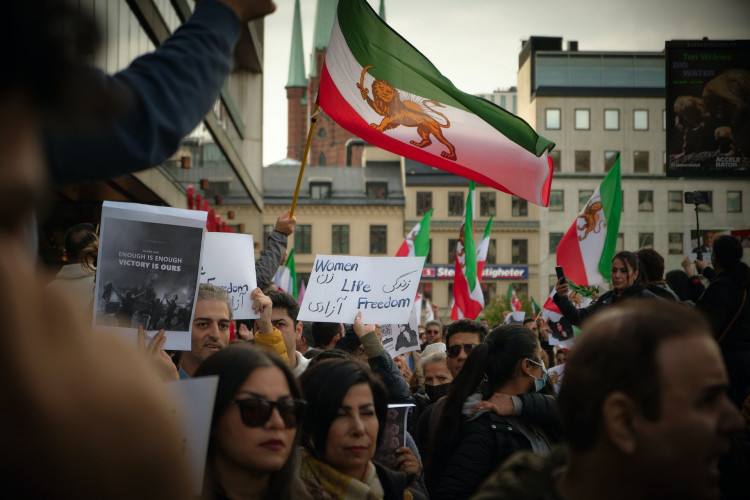Iranian security authorities have taken custody of Bitcoin supporter Ziya Sadr. The information was made public by numerous sources, and it was publicized on Sunday. Sources claim that Sadr was detained on the streets of Tehran on September 19; as of this reporting, he has not been freed.
Sadr was detained during huge anti-government demonstrations that broke out after Iranian woman Mahsa Amini, 22, was killed while being held by the police. Amini had been imprisoned for allegedly disregarding the strict Islamic dress regulations for females.
Since then, protests have expanded around the nation and have been greeted with a harsh crackdown that is believed to have resulted in dozens of deaths and hundreds of arrests. At least 35 journalists were detained by Iranian authorities in connection with the large-scale protests.
Sadr is currently in prison in Fashafouyeh and continues to communicate with his loved ones and close friends, but the specifics of what led to his detention are still unknown.
Sadr is a well-known Bitcoin educator and YouTuber who also promotes the technology. He suggested strategies to use Bitcoin for private transactions that prioritize privacy by translating Bitcoin literature into Farsi.
Sadr is only one of the thousands of Iranian activists and citizens who have been imprisoned by the Iranian government in the weeks after the protests. It is unknown whether Sadr's support for Bitcoin is what the Iranian government thinks of him. He wasn't taking part in a protest when he was arrested, according to several reports.
According to Nima Yazdanmerh, Sadr's friend, Sadr was scheduled to be released on bail on Sunday but that has been postponed due to widespread arrests from the protests.
The importance of Bitcoin to Iran's economy in the face of international sanctions was revealed by Ziya Sadr last year, a Bitcoin expert based in Tehran. For Iran, anonymous cryptocurrency transactions enable residents and businesses to evade the crippling economic sanctions.
"Iranians understand the value of such a borderless network much more than others because we can't access any kind of global payment networks. Bitcoin shines here." Sadr said.
Cryptocurrency has become increasingly popular in the Islamic country since former President Donald Trump unilaterally withdrew from the international community's nuclear agreement with Tehran in 2018 and reimposed sanctions on the country.
According to Yazdanmerh, Sadr's Twitter account was recently deactivated by a reliable source.
Other demonstrations broke out in the city's market, and other neighborhoods, including Azad University in northern Tehran. In Tehran's center and close to the university, many stores were closed.





